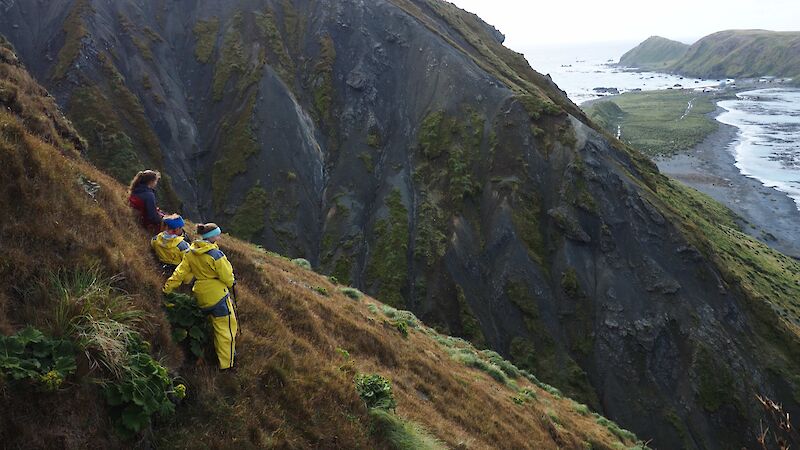Introduction
The Australian Antarctic Division (AAD) does not engage volunteers to conduct scientific or general support work in Antarctica. However, the AAD recognises that researchers from other organisations, such as universities, may require the services of volunteers.
Volunteer expeditioners will only be accepted in the Australian Antarctic Science Program (AASP) to work on approved projects where the chief investigator (CI) is not an AAD employee.
Code of ethics for the use of volunteer expeditioners
Volunteers are often early career scientists who put a great deal of time and effort into the project on which they are working. In recognition of the valuable contribution made by many of these people to the overall Antarctic science program, the AAD has agreed that their effort should be recognised in the following way.
Volunteers:
- should be regarded, where applicable, as scientific collaborators/colleagues on the project
- should be encouraged, where appropriate, to participate in the publication of results (and/or included as co-authors of relevant publications) arising from the project
- should be encouraged (and arrangements facilitated if they are interested) to use some of the data they have collected towards research for a higher degree or diploma from a collaborating university (this should be arranged prior to their participation in the field)
- should not be used solely to perform tasks which paid project employees are reluctant to undertake for any reason
- undertake tasks that are valuable to them (and to the project) and provide them with increased skill, knowledge, experience or other benefits.
Selection of volunteers
CIs are encouraged to ensure that volunteers are chosen through an open and accountable system.
CIs must ensure that nominated volunteer expeditioners are appropriately qualified. Please note that curriculum vitae are requested for all personnel who are named on a project including all paid and unpaid personnel participating in Antarctic field work.
Whenever possible, volunteers should be selected with a view that the experience is likely to benefit their career development. Above all, CIs must be able to justify their selection.
Mode of engagement
Volunteers must be covered by the workers’ compensation arrangements and insurance appropriate to the institution that employs the CI of the project. It is the CI’s responsibility to arrange appropriate cover prior to the volunteer’s departure for the field.
Volunteers will be required to participate in the full range of community duties on station. However, volunteers will not be considered for additional responsibilities such as Fire Chief, Search and Rescue Leader or Boat Master.
CIs should consider the potential for perceived inequity within groups of Antarctic expeditioners that may arise as a result of engaging paid and unpaid members in field teams.
Reimbursement of expenses for volunteer expeditioners
All expenses arising from a volunteer’s involvement in a project (e.g. fares to and from Hobart for field training or to meet Antarctic transport, accommodation in Hobart etc) should be met from project funds and not from the personal funds of the volunteer.
CIs may choose to provide some financial assistance to volunteers for telephone communications while in Antarctica from within the project budget.
Where a volunteer is required to meet any expenses associated with his or her participation on a project, the nature and amount of any such contribution should be agreed and documented with the CI before commencing the activity.
Work health and safety
Under national work health and safety legislation organisations must ensure, so far as is reasonably practicable, the health and safety of all of its workers, including volunteers. This means that volunteers must be provided the same protections as an organisation’s paid workers. This protection covers physical safety as well as mental health at work.
Volunteers must comply with all current AAD policies.

